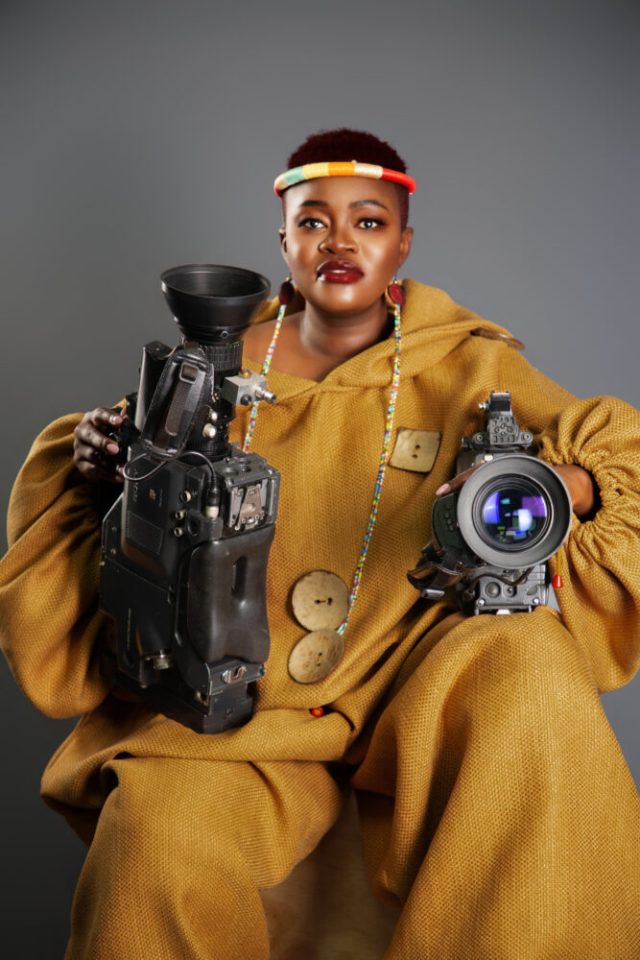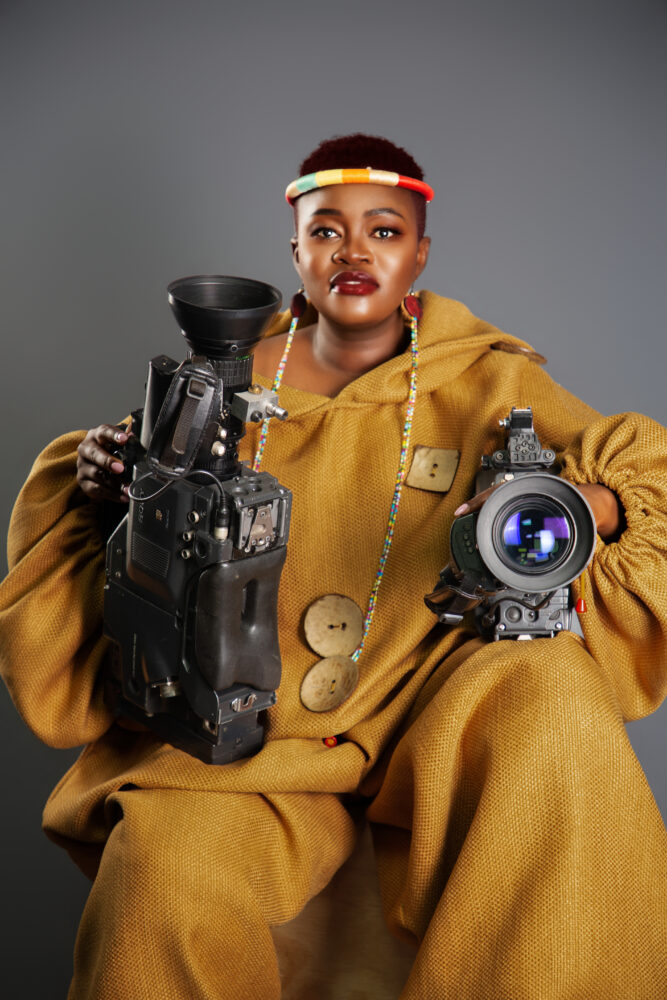
To keep the creative energies moving and avoid skills being irrelevant, artists must regularly find ways to continue honing their skills. As such, masterclasses, workshops and formal training at educational institutions become vital.
“Dancers are nimble, constantly getting their bodies ready. Musicians are always making noise. But actors only work when the agent calls. So, by the time they go into auditions, one is so out of touch with himself or herself or what is required in the industry,” says Dr John Kani.
Earlier this month, the veteran actor launched the Dr John Kani Performing Arts Academy. Based at the historic 44 Main in Johannesburg, the academy is a pioneering initiative dedicated to nurturing South Africa’s next generation of storytellers, actors, directors and scriptwriters.
“I decided to found the academy for actors already practicing in the sector who wish to upgrade and empower themselves,” he explained during our telephone interview.
As a part of the team that established Market Theatre Laboratory in 1989, Kani knows all too well the value of continuous learning as a performer. As he graced many stages and screens in a career spanning six decades, Kani had a constant concern about South African actors’ passiveness that he couldn’t shake off.
He indicated that when working abroad in a studio, one has access to a series of master classes by great gurus from countries like Russia, America and France.
“There are always classes you pay to attend. They would be talking about screenplay writing, transforming a project and how do you conceptualise a storyline. You attend these masterclasses to empower and upskill yourself,” Kani affirmed.
South African actors, Kani argued, are inactive between productions compared to their international counterparts and the academy serves to fill that gap.
Due to this gap, he saw fit to contribute his experiences, knowledge and cast the net wide around his network for industry experts to partner with including Jerry Mofokeng and Professor Zakes Mda.
The academy offers advanced, professional-level training for artists who already have at least 2-3 years of industry experience. Through short courses, workshops and masterclasses, students will learn about writing, acting, directing, voice and accent and costume design, among other skills.
Anywhere else in the world, there would be distinctive categories of art disciplines. However, due to a small TV, film and theatre industry in South Africa, Kani argues that it all falls under one umbrella.
“We have a very small film industry. If I tell you now in America, there will be over 400 movies being made. If I go to England now, I’ll find about 50 to 100. I don’t want to talk about Nigeria, probably 3,000. So, I don’t want to call it the South African film industry, so I would rather say the South African creative sector.”
Thus, the academy, Kani adds, will not only be focusing on film and theatre acting but on all types of artists who perform on stage and screen.

The story continues
Former Muvhango actress, Maumela Mahuwa also aims to reshape the landscape of creative education in South Africa through the African Academy of Cinematic Arts (AACA Film College).
Located in Randburg, Johannesburg, AACA is a fully academic institution offering Bachelor of Arts degrees (NQF Level 7) in both Film & Cinematic Studies and Acting for TV, with formal SAQA registration.
Co-founded alongside acclaimed filmmakers, Dr Frank Orji and Alisha Orji in 2017, Mahuwa says AACA’s distinction lies in three critical dimensions – academic rigour, practical immersion, and future‑proofing.
“We emphasise on a fully practical, on‑set, real‑production style training. Students are placed on active productions, shadowing and working alongside professionals. We believe in the future‑proofing the curriculum. For example, we have integrated an ‘AI in Filmmaking’ module, preparing students for the evolving technological landscape,” Mahuwa said.
Mahuwa added, “In short, the blend of accredited degree, hands-on production, cutting‑edge tech, and industry proximity set us apart.”
Unlike Kani’s academy that upskills practicing performers on stage and screen, AACA is focused mostly on training young filmmakers and screen actors.
By graduating storytellers, filmmakers, and actors who are both technically skilled and culturally fluent, Mahuwa says they hope to strengthen the local industry ecosystem, create jobs, and export African stories.
“Our ambition is to position South Africa as the production hub of Africa. Because our country is uniquely diverse — races, cultures, languages, geographies — we have within our borders the ingredients to produce content that speaks to the continent and to global audiences,” she added.
AACA’s inaugural class graduated in 2019 at Nu-Metro Cinema in Hyde Park, Johannesburg. The alumni are now prominent in the film and TV industry, starring in Netflix, Showmax, SABC shows, and feature films.
But in a country with high levels of unemployed graduates and heartbreaking images of seasoned actors asking for donations on social media, what role will the academies play to curb this?
“While no institution can guarantee employment for every graduate, AACA commits to providing job‑placement support for all degree graduates,” Mahuwa said.
Similar to Kani’s academy offering a course on financial management for artists and intellectual property, Mahuwa added that AACA recognises that creative success must be balanced with business literacy.
“Our programmes include entrepreneurship, entertainment law, finance mastery, and brand management modules. These prepare graduates to manage their careers, negotiate confidently, and build sustainable businesses,” Mahuwa affirmed.
Vision for African storytelling and investment
Regarding industry growth and sustainability, Mahuwa said that AACA is open to strategic partnerships and investors who share their vision for a pan‑African creative education platform that empowers the next generation of African storytellers.
Kani contends that South African storytellers and filmmakers should however rewire the thinking on the funding model.
“The word funding means this person doesn’t expect anything out of it, they are doing it out of the goodness of philanthropy. Yet, when you do a movie abroad, you’re looking for investors. They put money in and they ask you, “What’s the deal?
When the movie is released, how do I get my money back?” You got to make $300 million,” Kani indicated.
He proposes innovative models involving private investors, instead of relying only on government funding.
“For instance, let’s go to Patrice Motsepe, or any of the Forbes billionaires and be honest that we want to write the greatest African story and we need 250 million. We tell them to give us the money, we guarantee they will get their investment plus interest,” he suggested.
He also argued that local storytellers must move away from the tired stories about Apartheid and other socio-political issues.
“South Africa must write stories that become greatest blockbusters aiming at making money. We have to write stories that the global audience might just be blown away by the beauty of Africa. Why can’t we write Black Panther, Lion King or The Woman King? Because they are all set in Africa?” he asked curiously.
Kani encourages deeper storytelling celebrating African history and future narratives. He cites the likes of Idris Elba who is planning to build a film studio and creative village in Ghana and Tanzania with the aim for African storytellers to create their own narratives.
“There are so many beautiful and powerful stories in Africa. They are in our culture from the beginning of time. We were kings and queens before all this colonisation and oppression. Those are the stories we must tell so that our children and the next generation could know that Nelson Mandela was not the first. There were others way before him that led the charge of a free independent Africa,” he concludes.
Film and performing arts academies serve as creative hubs for specialised training, collaboration and artistic excellence.
Kani and Mahuwa’s committed efforts are not only about grooming young talent, but also sharpening experienced actors to not remain dormant and face potential industry irrelevance.
In a frail TV, film and theatre sector such academies aid as a major investment in South Africa’s creative and cultural economy.
South Africa’s creative sector is evolving as John Kani and Maumela Mahuwa launch academies designed to upskill performers, empower filmmakers and reshape African storytelling




